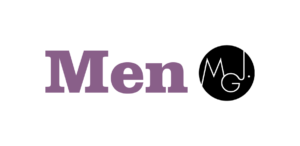Important Documents To Gather Before Getting Your Taxes Done

Some people think that if they do not earn a lot of money, they are exempt from filing taxes. Generally, it is uncommon to file no tax return. To put it simply, if your income (assuming you do not have earnings, such as self-employment income) is less than your usual deduction, then in general, you do not need to file a return. To expedite the process and maximize potential tax savings, the first step for clients is to obtain the necessary tax documentation prior to their meeting.
The responsibilities of tax preparers are important. In order to provide exceptional service during these busy times, needs must be effectively communicated and scheduled for easy times. Successfully navigating a complex tax preparation environment requires careful planning and attention to detail. It is important for clients and tax preparers to stay abreast of recent changes, as tax laws and regulations are constantly changing. Preparation for tax activity is essential, and people in Alabama have found the solution to it by hiring tax preparation services. If you are also a resident of Alabama and need tax preparation assistance, you can also contact tax preparation services in Alabama.
Documents you need to gather before filing your taxes
Having all the necessary documents ready and available saves tax preparation time and ensures accuracy. Additionally, it helps tax preparers find potential credits and deductions that clients won’t know about, ultimately improving their tax savings.
In addition to practical benefits, comprehensive preparation provides both clients and tax preparers with confidence and peace of mind. Clients can approach tax advice with confidence, knowing that all necessary documents have been properly assembled and that they are ready to answer any question.
When preparing for your tax consultation, remember to bring the following types of records and documents:
- Personal information: Names, dates of birth, and Social Security numbers for every filer and dependent
- Earned or received income: W-2 forms, different 1099 investment forms, SSI/unemployment benefits, or income tax return forms
- Business: information on capital equipment and the profit/loss statement
- Other: Any additional funds obtained from scholarships, wins from gambling, medical savings accounts (MSA), and alimony
- Changes in income: Pretax deductions taken from earnings for things like alimony, Health Savings Accounts (HSA), and IRA contributions
- Records of expenses: Maintain a record of all deductible costs, especially property tax records, mortgage interest statements (Form 1098), medical expenditure receipts, receipts for charity investments, and any unreimbursed business expenses.
- Allowable costs for deduction: Purchases made for a career, like those made for teachers; alimony paid (after 2018 no longer deducted from the payee’s gross income or included in the payer’s gross income); Keogh (a tax-deferred pension scheme available to unincorporated businesses or self-employed individuals); Simplified Employee Pension Plan (SEP); SIMPLE (small employers); and other self-employed pension plans; moving expenses; or interest on student loans








